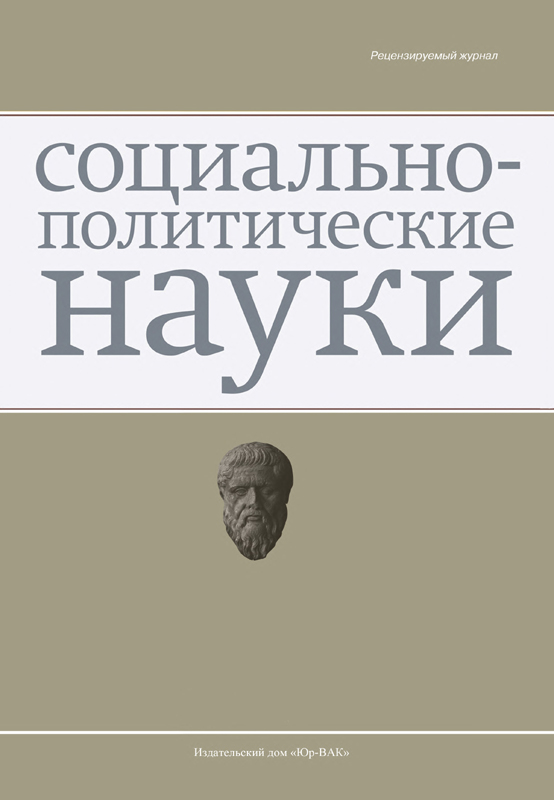The Teachings of Jesus Christ as an Alternative to Modern Western Liberalism in Politics and Government
- Authors: Kovalev A.A.1, Katanandov S.L.1
-
Affiliations:
- North-Western Institute of Management at the Russian Academy of National Economy and Public Administration under the President of the Russian Federation
- Issue: Vol 13, No 1 (2023)
- Pages: 31-37
- Section: Public and Regional Politics
- URL: https://journals.eco-vector.com/2223-0092/article/view/545862
- DOI: https://doi.org/10.33693/2223-0092-2023-13-1-31-37
- ID: 545862
Cite item
Abstract
The purpose of the research. The objective of this study is an attempt to prove the importance of the teachings of Jesus Christ in matters of theoretical and practical study of public administration and politics in general in the leading secular states living according to the principles of modern liberalism, as well as to demonstrate the presence of political motives in the teachings of the founder of Christianity. Results. In the course of the study, conclusions were drawn that the teachings of Jesus are not devoid of a political component. The gospels, when properly interpreted, provide the world with a great deal of valuable political information about the teachings of Jesus, which can complement scientific knowledge in the study of government and politics in general.
Keywords
Full Text
About the authors
Andrey A. Kovalev
North-Western Institute of Management at the Russian Academy of National Economy and Public Administration under the President of the Russian Federation
Email: kovalev-aa@ranepa.ru
Candidate of Political Sciences, Associate Professor, associate professor at the Department of State and Municipal Administration
Russian Federation, St. PetersburgSergey L. Katanandov
North-Western Institute of Management at the Russian Academy of National Economy and Public Administration under the President of the Russian Federation
Author for correspondence.
Email: katanandov-sl@ranepa.ru
Candidate of Philosophical Sciences, associate professor at the Department of State and Municipal Administration
Russian Federation, St. PetersburgReferences
- Weber M. Favorites. Society image. Moscow: Lawyer, 1994. 702 p.
- Zhiltsova E.A., Somsikova O.A. The problem of religion and the perception of Christianity in the philosophy of Friedrich Nietzsche. Bulletin of the Chelyabinsk State University. 2008. No. 11. Pp. 7–13. (In Rus.)
- Snowstorm O.V. The image of Jesus Christ in the works of P.Zh. Proudhon. Bulletin of the Omsk University. 2016. No. 2 (10). Pp. 10–15. (In Rus.)
- Storkey A. Jesus and politics. Opposition of the authorities. Cherkasy: Colloquium, 2008. 416 p.
- Clark F., Lorenzoni A.B. Handbook of organization theory and management: The philosophical approach. 2nd ed. CRC Press, 2005. 896 p.
- Derrida J. Theory and practice. University of Chicago Press, 2019. 144 p.
- Deutsch K.L., Nicgorski W. Leo Strauss: Political philosopher and Jewish thinker. Rowman & Littlefield, 1994. 396 p.
- Fernando S. Cultural diversity, mental health and psychiatry: The struggle against racism. Routledge, 2004. 272 p.
- Foucault M. History of madness. Routledge, 2013. 776 p.
- Habermas J. Religion and rationality: Essays on reason, god and modernity. John Wiley & Sons, 2014. 184 p.
- Habermas J. Legitimation crisis. John Wiley & Sons, 2015. 192 p.
- Oord T.J. God Can’t: How to believe in God and love after tragedy, abuse, and other evils. Sacra Sage Press, 2019. 212 p.
- Schweitzer A. The Quest of the Historical Jesus: A critical study of its progress from reimarus to wrede. London: Adam and Charles Black, 1911. 608 p.
- Strauss L. Liberalism ancient and modern. University of Chicago Press, 1995. 276 p.
- Strauss L. Leo Strauss on political philosophy: Responding to the challenge of positivism and historicism. University of Chicago Press, 2018. 272 p.
Supplementary files









